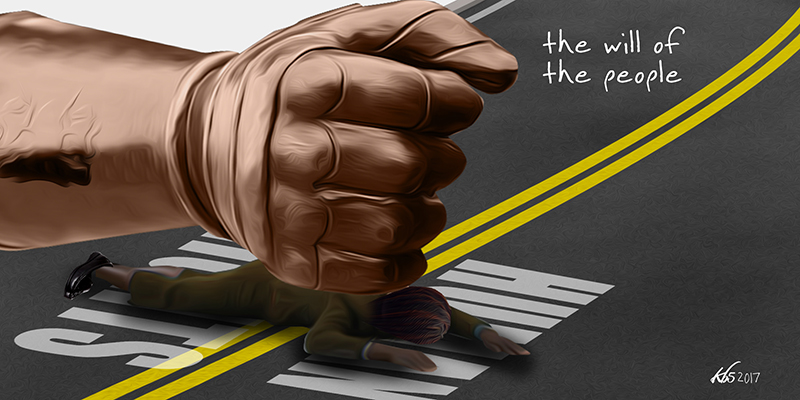by RASNA WARAH

The imposition of a curfew in Kenya in response to COVID-19 has been accompanied by increasing levels of violence against civilians by the police. This has, once again, underscored how poorly trained Kenya’s police “service” is and why it is the most dreaded institution in the country.
Every time there is a crisis in Kenya, the country’s fault lines begin to show, whether it is inefficient or corrupt institutions or a leadership that is only interested in its own survival.
During the deeply polarised 2013 and 2017 elections, for example, Kenya’s electoral body showed itself to be either unable or unwilling to conduct fair and transparent elections. Corruption scandals involving past and current electoral commissioners failed to get the commissioners removed, and questions about the validity of the tallying process have not yet been fully answered.
During the Moi regime, as the country’s economy stagnated under the weight of corruption and economic mismanagement, the judiciary proved to be an enemy of the people, always siding with the corrupt. Kamlesh Pattni, one of the masterminds of the Goldenberg Scandal, which almost brought the country to its knees, remains a free man to this day.
After the Westgate Mall terrorist attack in September 2013, Kenyans were horrified to learn that instead of subduing the terrorists and helping hostages within the mall to escape, security officers, including the Kenya Defence Force, had gone on a looting spree in the mall, whose shops were emptied of nearly everything during the four-day siege.
Under the debt-ridden Jubilee administration, Kenyans have watched their standard of living deteriorate considerably as the promised economic growth fails to reach the majority of the country’s population and as mega scandals, including importation of contaminated food and daylight robbery in government institutions, continue unabated. President Uhuru Kenyatta’s promise to bring corrupt individuals—including the “big fish”—to book has yet to result in convictions or to gain the trust of a cynical citizenry for whom corruption has become a way of life, thanks to the myriad bribes demanded every time they want a government service. With rising Chinese debt and now the coronavirus pandemic, Kenya’s economic future looks even bleaker.
The Elephant for more
